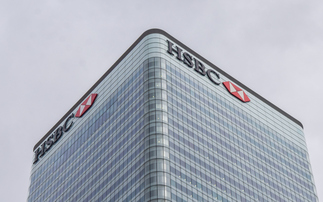Industry Voice: As a contrarian, the unrelenting negativity that investors are demonstrating towards UK equities is making me feel more and more positive on their prospects for 2019. It might be counterintuitive to think that the UK market could be among the top performers globally in the year that we leave the EU (if indeed we do). But markets have a way of confounding expectations and surprising the consensus.
I do not have a view on whether a soft or hard Brexit is more likely. My positive outlook for UK equities simply relies on some clarification in the relationship between the UK and the EU, which would act as a catalyst for investors to revisit the UK equity market as a destination for capital. It may be a cliché, but investors really do hate uncertainty, and for global asset allocators, there has been little incentive to do the work on cheap UK shares.
A contrarian environment
As well as the ubiquitous fund manager surveys showing the UK consistently at the bottom of the pile, anecdotally I have heard from brokers of their US clients refusing to buy global oil companies simply because they are UK-listed. Closer to home, I can't remember the last time I met a UK based client who was increasing their UK exposure. There have been over £3.1bn of outflows from All-cap UK equity funds this year. In absolute terms this is twice the amount of outflows in 2008 (adjusted for a higher market it is a similar amount).
IMA UK All Companies net retail sales as % of starting AUM
Source: IMA as of 31 October 2018
Valuation discounts are just not a strong enough draw in the face of risks that are so widely discussed and absorbed into consensus thinking. The possibility of clients saying ‘I told you so' has a real impact on investor behaviour. This is an exciting environment for a contrarian.
One thing I have learned from investing in unloved companies is that you shouldn't necessarily wait for good news to become obvious before investing. By investing when all the bad news is ‘in the price' and no good news is expected at all, you put the odds in your favour. I think this is a situation we are in in the UK at the moment.
The UK market is currently trading at 12x earnings compared to 14x for Europe ex-UK and 17x for the US. But rather than comparing market averages, which can conceal differences in composition, it is more useful to try to find like for like comparisons. In the P/E Ratios chart, I compare 4 positions in the fund to similar businesses in the US or Europe. In all cases, we can see meaningful discounts.
Lloyds languishes on a 7x P/E multiple, while only 250 miles away, Belgian Bank KBC enjoys a 40% premium, on a rating of 10x, despite having very similar characteristics and long-term growth prospects. It is fair to expect some discount for UK domestic stocks compared to US and European counterparts, but current discounts seem excessive, and apply to international-facing stocks too.
2019 P/E Ratios
Source: Fidelity Estimates & Thomson Reuters, November 2018
Selectivity will be key
A selective approach remains important. Not all UK stocks are equally attractive, and although many domestic businesses are being unfairly ignored, others are structurally compromised or financially unsound and therefore best avoided. I am happy buying unloved domestic stocks if I can see a balance sheet that can withstand a period of economic weakness, and valuation that gives me some margin of safety. But Special Situations has around 32% of revenues generated in the UK compared to 30% for the FTSE All Share, so by no means am I expressing a view on a particular Brexit outcome in the fund positioning.
Attractive valuations can be found across the market, in large and small companies, both international and domestic-facing. My process rests on identifying unloved companies with the potential for positive change. And the number of unloved companies available to choose from now makes me think 2019 could turn into a surprisingly positive year for investors brave enough to buy UK equities before the good news.
Further information
Fidelity Special Situations Fund
Video: From unloved to recovery - a three stage investment cycle
This is for investment professionals only and should not be relied upon by private investors.
The value of investments can go down as well as up so the client may get back less than they invest. Past performance is not a reliable indicator of future returns. The Fidelity Special Situations Fund can invest in overseas markets and so the value of investments can be affected by changes in currency exchange rates. They can also use financial derivative instruments for investment purposes, which may expose the funds to a higher degree of risk and can cause investments to experience larger than average price fluctuations. Reference to specific securities should not be construed as a recommendation to buy or sell these securities and is included for the purposes of illustration only. Investors should note that the views expressed may no longer be current and may have already been acted upon. Investments in Fidelity funds should be made on the basis of the current prospectus, which is available along with the Key Investor Information Document, current annual and semi-annual reports free of charge on request by calling 0800 368 1732. Issued by Financial Administration Services Limited and FIL Pensions Management, authorised and regulated by the Financial Conduct Authority. Fidelity, Fidelity International, the Fidelity International logo and F symbol are trademarks of FIL Limited. UKM1118/22955/SSO/NA













